Filter by

Guideline for Salinity Assessment, Mitigation and Adaptation Using Nuclear an…
This open access book is an outcome of the collaboration between the Soil and Water Management & Crop Nutrition Section, Joint FAO/IAEA Division of Nuclear Techniques in Food and Agriculture, Department of Nuclear Sciences and Applications, International Atomic Energy Agency (IAEA), Vienna, Austria, and Dr. Shabbir A Shahid, Senior Salinity Management Expert, Freelancer based in United Arab Emi…
- Edition
- 1
- ISBN/ISSN
- 9783319961903
- Collation
- XXVI, 164 hlm,: ill, lamp;
- Series Title
- -
- Call Number
- -
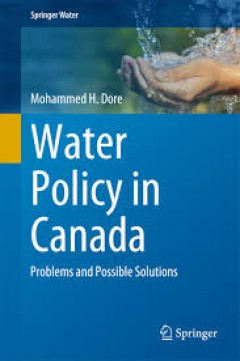
Water Policy in Canada Problems and Possible Solutions
This book deals with the water policy and management in Canada. It discusses various problems and risks in the fresh and drinking water supply in the second largest country in the world. Mohammed Dore argues that water is underpriced and used wastefully in Canada. In selected case studies, he illustrates the major threats from human activity to Canadian freshwaters and drinking water resources,…
- Edition
- -
- ISBN/ISSN
- 978-3-319-15883-9
- Collation
- -
- Series Title
- -
- Call Number
- -
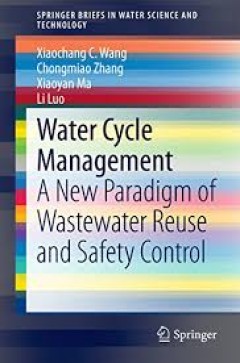
Water Cycle Management A New Paradigm of Wastewater Reuse and Safety Control
This book focuses on environmental engineering, and on wastewater treatment and reuse in particular, which is a vital aspect for countries and regions suffering from water shortages. It introduces a new water cycle management concept for designing water systems that mimic the hydrological cycle, where reclaimed water is produced, stored/regulated, supplied and used in a semi-natural manner so t…
- Edition
- -
- ISBN/ISSN
- 978-3-662-45821-1
- Collation
- -
- Series Title
- -
- Call Number
- -
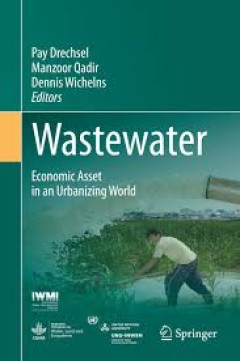
Wastewater Economic Asset in an Urbanizing World
The books provides a timely analysis in support of a paradigm shift in the field of wastewater management, from ‘treatment for disposal’ to ‘treatment for reuse’ by offering a variety of value propositions for water, nutrient and energy recovery which can support cost savings, cost recovery, and profits, in a sector that traditionally relies on public funding. The book provides new insi…
- Edition
- -
- ISBN/ISSN
- 978-94-017-9545-6
- Collation
- -
- Series Title
- -
- Call Number
- -
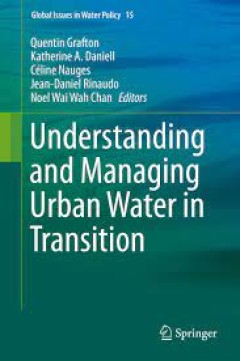
Understanding and Managing Urban Water in Transition
This book examines changes and transitions in the way water is managed in urban environments. This book originated from a joint French-Australian initiative on water and land management held in Montpellier, France. The book delivers practical insights into urban water management. It links scientific insights of researchers with the practical experiences of urban water practitioners to understan…
- Edition
- -
- ISBN/ISSN
- 978-94-017-9801-3
- Collation
- -
- Series Title
- -
- Call Number
- -
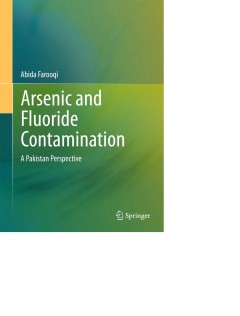
Arsenic and Fluoride Contamination: A Pakistan Perspective
This book presents an up-to-the-minute overview of arsenic and fluoride pollution of soil and groundwater in Pakistan. It includes the author’s doctoral dissertation on Lahore as a case study and describes the mechanism of pollution on the basis of the findings in that area. The book highlights the concrete situation in Pakistan – including the severity of the problem, its health effects an…
- Edition
- Ed. 1
- ISBN/ISSN
- 978-81-322-2298-9
- Collation
- XI, 147
- Series Title
- -
- Call Number
- 553.79 FAR a
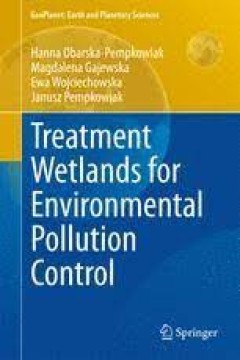
Treatment Wetlands for Environmental Pollution Control
The aim of this book is to present an overview of the state of the art with regard to the function, application and design of TWSs in order to better protect surface water from contamination. Accordingly, it also presents applications of constructed wetlands with regard to climatic and cultural aspects. The use of artificial and natural treatment wetland systems (TWSs) for wastewater treatme…
- Edition
- -
- ISBN/ISSN
- 978-3-319-13794-0
- Collation
- -
- Series Title
- -
- Call Number
- -
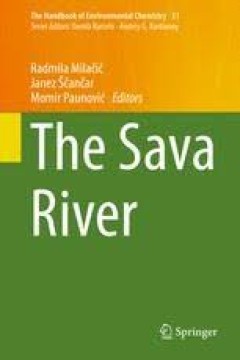
The Sava River
This volume provides a comprehensive overview of environmental aspects of the Sava River, which is the greatest tributary to the Danube River and the major drainage river system of South Eastern Europe. Hydroelectric power plants, river traffic, intensive agricultural activities, heavy industry and floods have considerable influence on the environment and biota in the basin. Summarizing the res…
- Edition
- -
- ISBN/ISSN
- 978-3-662-44034-6
- Collation
- -
- Series Title
- -
- Call Number
- -
 Computer Science, Information & General Works
Computer Science, Information & General Works  Philosophy & Psychology
Philosophy & Psychology  Religion
Religion  Social Sciences
Social Sciences  Language
Language  Pure Science
Pure Science  Applied Sciences
Applied Sciences  Art & Recreation
Art & Recreation  Literature
Literature  History & Geography
History & Geography